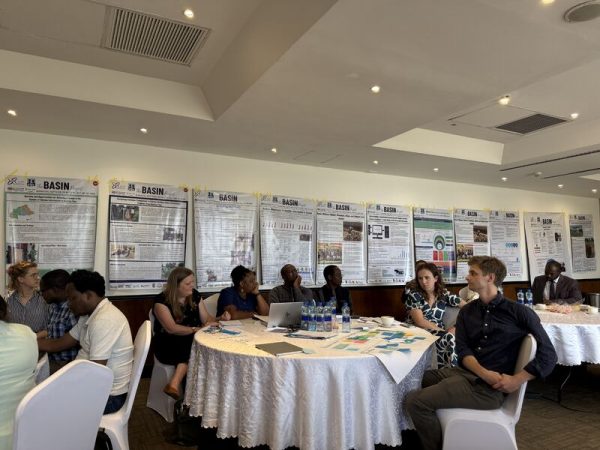This week, Katharine Vincent and Willem Colenbrander participated in the meeting of the Behavioural Adaptation for Water Security and Inclusion (BASIN) project consortium in Dar es Salaam. BASIN is a project of the Climate Resilience and Adaptation (CLARE) programme, funded by FCDO and IDRC.
BASIN is led by the Grantham Research Institute on Climate Change and Environment at the London School of Economics and Political Science. The project is using insights from behavioural and psychological sciences to research adaptation behaviours and practices. The transdisciplinary team comprises practice-based partners who are keen to use these insights to support adaptation for inclusive water security.
The meeting took stock of research findings to date. These findings span a range of activities from micro-irrigation opportunities in sand rivers in Tanzania to institutionalising community relays who monitor community water resources in Burkina Faso. Cross-cutting across the multiple case studies are research questions looking at motivations behind volunteering, what drives the uptake and use of climate information, and how institutions behave around adaptation and water security.
There are a number of emerging lessons so far. Applying behavioural insights in African countries is generating novel evidence with implications for practice. Most behavioural models prioritise individual behaviour, which overlooks collective behaviours which are important in many of our case study contexts. Understanding how and why people and institutions behave as they do offers exciting potential for more effective adaptation. However, promoting certain behaviours is based on a normative decision of what should be en-/dis-couraged. Critical perspectives highlight the potential for social exclusion or reinforcement of uneven power relations, and the implications for climate justice.

